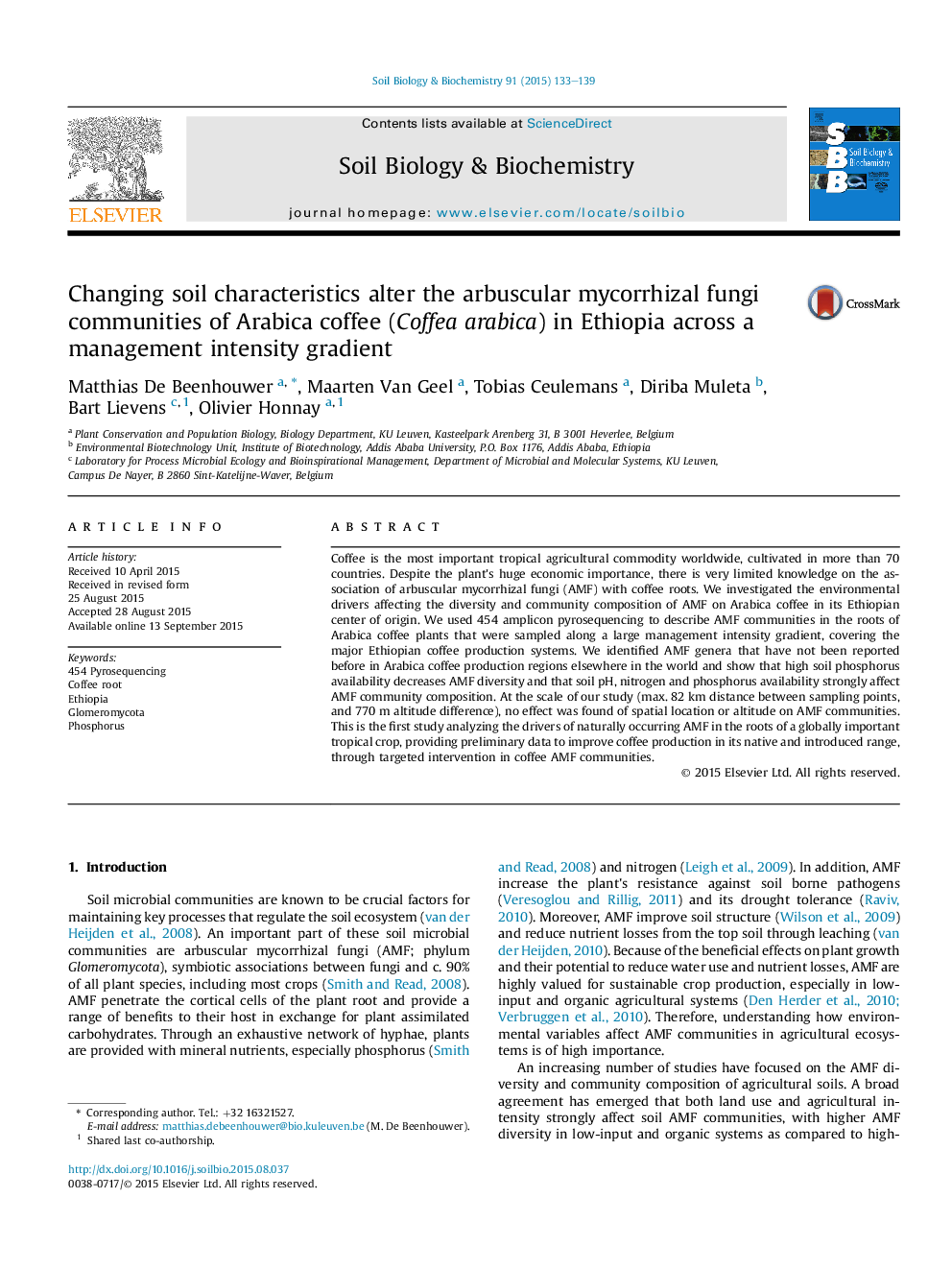| Article ID | Journal | Published Year | Pages | File Type |
|---|---|---|---|---|
| 8363786 | Soil Biology and Biochemistry | 2015 | 7 Pages |
Abstract
Coffee is the most important tropical agricultural commodity worldwide, cultivated in more than 70 countries. Despite the plant's huge economic importance, there is very limited knowledge on the association of arbuscular mycorrhizal fungi (AMF) with coffee roots. We investigated the environmental drivers affecting the diversity and community composition of AMF on Arabica coffee in its Ethiopian center of origin. We used 454 amplicon pyrosequencing to describe AMF communities in the roots of Arabica coffee plants that were sampled along a large management intensity gradient, covering the major Ethiopian coffee production systems. We identified AMF genera that have not been reported before in Arabica coffee production regions elsewhere in the world and show that high soil phosphorus availability decreases AMF diversity and that soil pH, nitrogen and phosphorus availability strongly affect AMF community composition. At the scale of our study (max. 82Â km distance between sampling points, and 770Â m altitude difference), no effect was found of spatial location or altitude on AMF communities. This is the first study analyzing the drivers of naturally occurring AMF in the roots of a globally important tropical crop, providing preliminary data to improve coffee production in its native and introduced range, through targeted intervention in coffee AMF communities.
Related Topics
Life Sciences
Agricultural and Biological Sciences
Soil Science
Authors
Matthias De Beenhouwer, Maarten Van Geel, Tobias Ceulemans, Diriba Muleta, Bart Lievens, Olivier Honnay,
